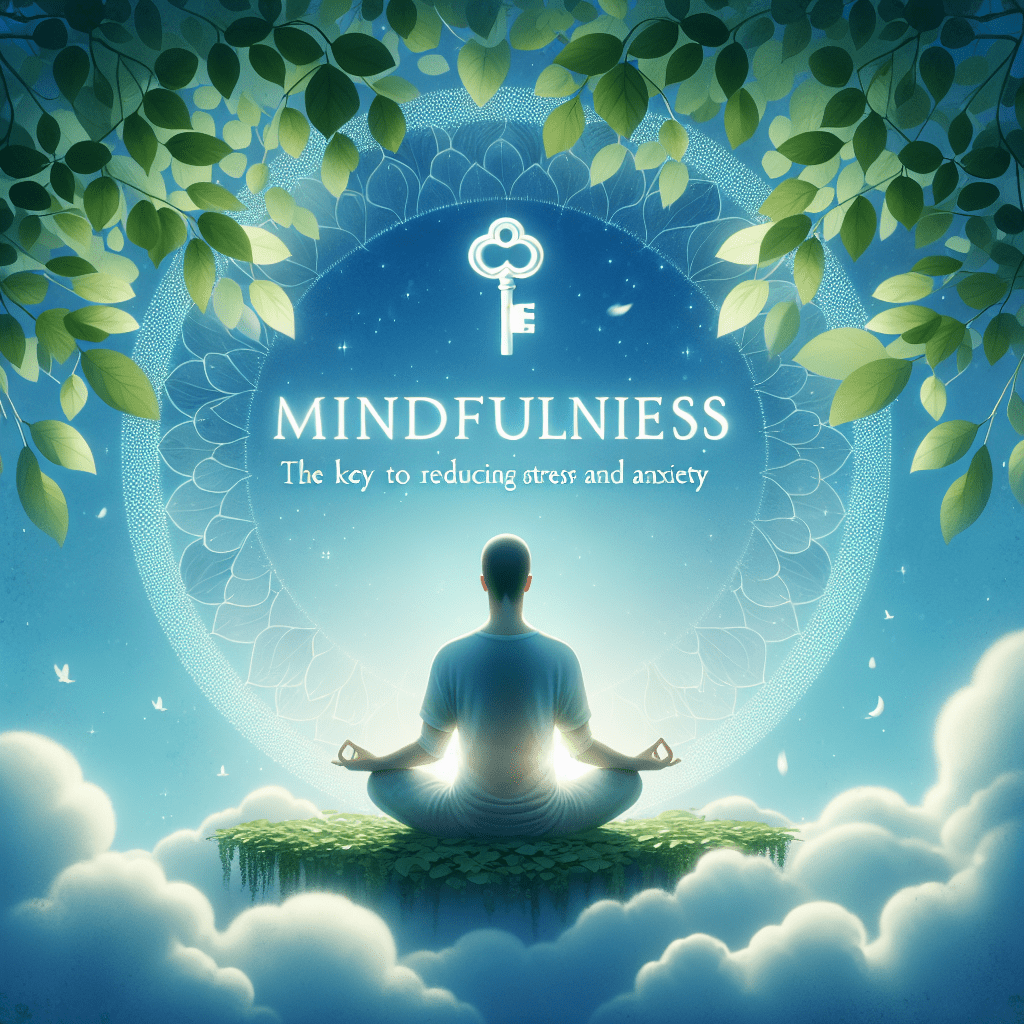Stress and anxiety have become increasingly prevalent in today’s fast-paced and demanding world. With constant pressure from work, relationships, and other responsibilities, it’s no wonder that many people are struggling to cope with the overwhelming feelings of stress and anxiety. However, there is one powerful tool that can help alleviate these negative emotions and promote a sense of calm and well-being: mindfulness.
What is Mindfulness?
Mindfulness is the practice of being fully present in the moment, without judgment or attachment to thoughts, feelings, or sensations. It involves paying attention to the present moment with openness, curiosity, and acceptance. By cultivating mindfulness, individuals can develop a greater awareness of their thoughts and emotions, allowing them to respond to stress and anxiety in a more skillful and effective way.
Benefits of Mindfulness
Research has shown that mindfulness can have a profound impact on reducing stress and anxiety. By bringing attention to the present moment, individuals can break free from the cycle of rumination and worry that often characterize these negative emotions. Mindfulness has also been found to improve overall well-being, enhance focus and concentration, and promote emotional resilience.
How to Practice Mindfulness
There are many ways to incorporate mindfulness into your daily routine. One popular method is through meditation, where individuals can sit quietly and focus on their breath or a mantra. Other mindfulness practices include mindful walking, eating, and listening. By engaging in these activities with a sense of presence and awareness, individuals can begin to cultivate mindfulness in their everyday lives.
Conclusion
In conclusion, mindfulness is a powerful tool for reducing stress and anxiety in today’s fast-paced world. By bringing attention to the present moment with openness and acceptance, individuals can begin to let go of the negative thoughts and emotions that contribute to these feelings. Through regular practice of mindfulness, individuals can cultivate a sense of calm and well-being that can significantly improve their overall quality of life.
FAQs
Q: How long does it take to see the benefits of mindfulness?
A: While some individuals may experience immediate benefits from practicing mindfulness, it often takes consistent practice over time to see lasting results. It’s important to be patient and persistent in your mindfulness practice.
Q: Can anyone practice mindfulness?
A: Yes, anyone can practice mindfulness regardless of age, background, or experience. Mindfulness is a universal practice that can be adapted to suit individual needs and preferences.
Q: Are there any potential side effects of practicing mindfulness?
A: While mindfulness is generally considered safe for most people, some individuals may experience temporary discomfort or heightened emotions when first starting their practice. It’s important to approach mindfulness with self-compassion and self-care.
Tip
Remember to be kind and patient with yourself as you begin your mindfulness practice. It’s normal to experience ups and downs along the way, but with consistent effort and dedication, you can reap the many benefits that mindfulness has to offer.
#Mindfulness #Key #Reducing #Stress #Anxiety

